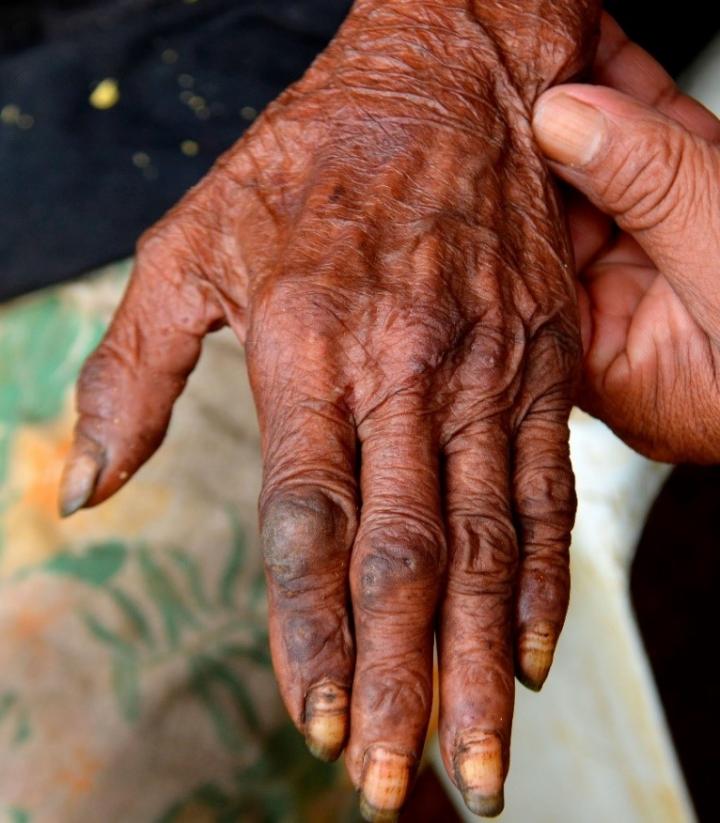
Credit: Feldmeier, et al. (2018)
Tungiasis, a tropical disease associated with poverty, is caused by the penetration of female sand fleas into a person’s skin, usually in their toes or feet. This week in PLOS Neglected Tropical Diseases, researchers report five cases of severe tungiasis to illustrate how the disease may develop into a life-threatening condition.
When the female sand flea (Tunga penetrans or Tunga trimamillata) penetrates the skin, it begins quickly growing. Within days, this growth causes intense inflammation with pain and itching. Generally, once all eggs are expelled into the environment through a tiny hole in the skin and the parasite has died, symptoms regress. But in endemic settings, residents are frequently re-infected and end up with hundreds or thousands of embedded sand fleas. While mild cases of tungiasis with a few embedded sand fleas can be treated surgically (if adequate health infrastructure is available), in very severe tungiasis surgical removal of embedded sand fleas is not possible.
In the new work, Hollman Miller, of the Vaupés Health Department, Colombia, and colleagues studied five patients living in traditional Amerindian communities in the Amazon lowland of Colombia who all presented with very severe tungiasis. Four of the patients were seen in the emergency department of the Mitú hospital, one within the community she was living in.
The patients, who were all partially or fully immobile, each had between 400 and 1,300 penetrated sand fleas in their feet, ankles, knees, elbows, hands, fingers and around the anus. Two patients were cachectic, with weight and muscle loss; one had severe malnutrition; and one needed a blood transfusion due to severe anemia. The authors show that a characteristic pattern of pre-existing medical conditions and socio-economic and environmental factors determines whether tungiasis progresses into a life-threatening condition. In addition, they confirmed that a combination of two dimeticone oils in a medical device called the NYDA (previously used for treating headlice) is effective in killing hundreds of embedded sand fleas resulting in resolution of inflammation and restoration of mobility within a week.
“Our findings are a good argument to make a call for action for those countries in which tungiasis occurs in remote settings and where health coverage is poor,” the researchers say. “Dimeticone should be made available to treat patients in an early stage of disease to avoid life-threatening sequels.”
###
In your coverage please use this URL to provide access to the freely available paper: http://journals.
Citation: Miller H, Ocampo J, Ayala A, Trujillo J, Feldmeier H (2019) Very severe tungiasis in Amerindians in the Amazon lowland of Colombia: A case series. PLOS Neglected Tropical Diseases 13(2): e0007068. https:/
Image Credit: Feldmeier, et al. (2018)
Image Caption: “Ectopic localization of embedded sand fleas on the back of the hand.”
Funding: The authors received no specific funding for this work.
Competing Interests: The authors declare that no competing interests exist.
Media Contact
Hermann Feldmeier
[email protected]
Original Source
http://journals.
Related Journal Article
http://dx.




